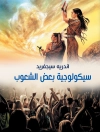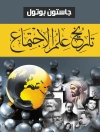This book defends that the pursuit of originality constitutes one of the most important characteristics of creativity, but that originality refers, etymologically, to both origin and originary. Hence, the book is structured into two parts, dedicated, respectively, to the creative categories of origin and the creative categories of originary. Within the former are creation myths, games – the origin of all cultural activity, the dialectic chaos-order, axial civilizations – the germ of our time, and the struggle between generations – a factor of social transformation, and, within the second, creative capitalism, creative work in the context of the global economy of risk and uncertainty, and representative democracy. However, these two concepts are not isolated, but deeply interrelated, in a way that explains how creative originality builds a temporal narrative. It has been dislocated in late modernity and, with it, creativity has been broken.
İçerik tablosu
Part I Introduction.- 1 Originality or from the Origin to the Originary.- Part II Creative Categories of the Origin.- 2 Mythical Bases for a Sociological Definition of the Concept of Creativity.- 3 Creativity: Sociocultural Order and Chaos, Memory of the Past, and Projection of the Future.- 4 The Originality of Axial Civilizations and the Free Play of History
5 The Ages of Creativity.- Part III Creative Categories of the Originary.- 6 From Creative Capitalism to Old Age
7 Creative Work in the Global Economy of Risk and Uncertainty.- 8 The Connection Between Creative Economy and the Crisis of Representative Democracy.- Part IV Final Coda: Broken Creativity.- 9 Creativity Without Time.
Yazar hakkında
Juan A. Roche Cárcel is a professor of sociology of culture and the arts at the University of Alicante (Spain). He is the author of numerous books and articles on culture and arts and president of the committee for the sociology of emotions at the Spanish Federation of Sociology (FES).












